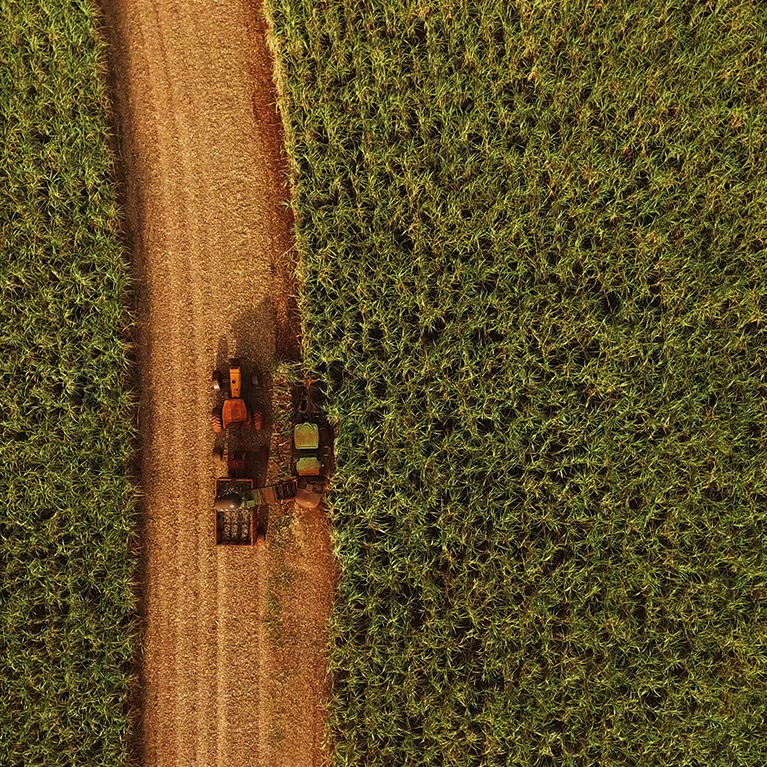The aviation sector stands out as one of the most challenging industries to decarbonize. Despite these challenges, aviation plays a critical role in the global fight against climate change, currently accounting for 3% of total greenhouse gas emissions. This impact is set to grow in the coming decades. According to the International Civil Aviation Organization (ICAO), global air travel demand is expected to surge, with passenger traffic projected to reach 19.5 billion by 2042—more than double the volume recorded in 2024.
Addressing aviation emissions has become increasingly urgent in the global effort to meet climate targets. In response, the aviation industry has made an international commitment to achieve net-zero carbon emissions by 2050. According to a study by the International Air Transport Association (IATA), the most viable pathway to reaching this goal is through the widespread adoption of Sustainable Aviation Fuel (SAF). SAFs are renewable or waste-derived fuels that meet strict sustainability criteria and are designed to serve as drop-in replacements for conventional jet fuels. Unlike more capital-intensive solutions—such as retrofitting existing aircraft or developing entirely new technologies—SAFs require minimal changes to current aircraft and infrastructure. This makes them one of the most practical and promising tools for decarbonizing aviation in the near to mid-term.
SAF can be produced from a diverse array of feedstocks, including ethanol, used cooking oils and greases, and agricultural or forestry residues. Compared to conventional jet fuel, SAF offers a significant reduction in lifecycle greenhouse gas (GHG) emissions—by as much as 80%. To date, 11 production pathways have been certified for SAF, with the Alcohol-to-Jet (ATJ) process, which converts ethanol into jet fuel, emerging as one of the most promising and scalable options.
Brazil is already a global leader in the use of biofuels for ground transportation and is now advancing efforts to produce SAF. These initiatives include not only SAF derived from ethanol but also from biomethane, which is obtained through the purification of biogas. Biogas represents a new frontier in renewable energy, generated from by-products of ethanol and sugar production—such as vinasse and filter cake—making the process both sustainable and circular.
Furthermore, a recent study by the Massachusetts Institute of Technology (MIT) identified Brazil as the Latin American country with the greatest potential to produce SAF at the largest scale and lowest cost (ranging from $1.11 to $1.77/liter). This positions Brazil not only to meet regional demand but also to contribute significantly to global supply.
The growth potential of the SAF market is immense, as it currently accounts for less than 0.5% of all aviation fuel use. However, several challenges must be overcome to unlock its full potential in decarbonizing the sector and phasing out fossil fuels. According to a report by the World Economic Forum, the primary obstacles to aviation decarbonization are the limited availability and high cost of SAF. Addressing these challenges will require strong public policy frameworks and substantial investment. ICAO estimates that approximately $3.2 trillion in investment will be required to scale up cleaner aviation fuel production and achieve its goal of net-zero emissions from international aviation by 2050.
A coordinated global effort is essential to establish stable policy frameworks that foster long-term markets, attract investment, and drive technological innovation in SAF. The upcoming COP30 in Belém presents a pivotal opportunity for governments, industry, and civil society to come together and help to build the financial and regulatory foundation SAF needs to scale. By aligning investment, public policy, and international cooperation, the world can lay the groundwork for SAF to become a cornerstone of decarbonized aviation—and take a decisive step toward a more sustainable, low-carbon future.


